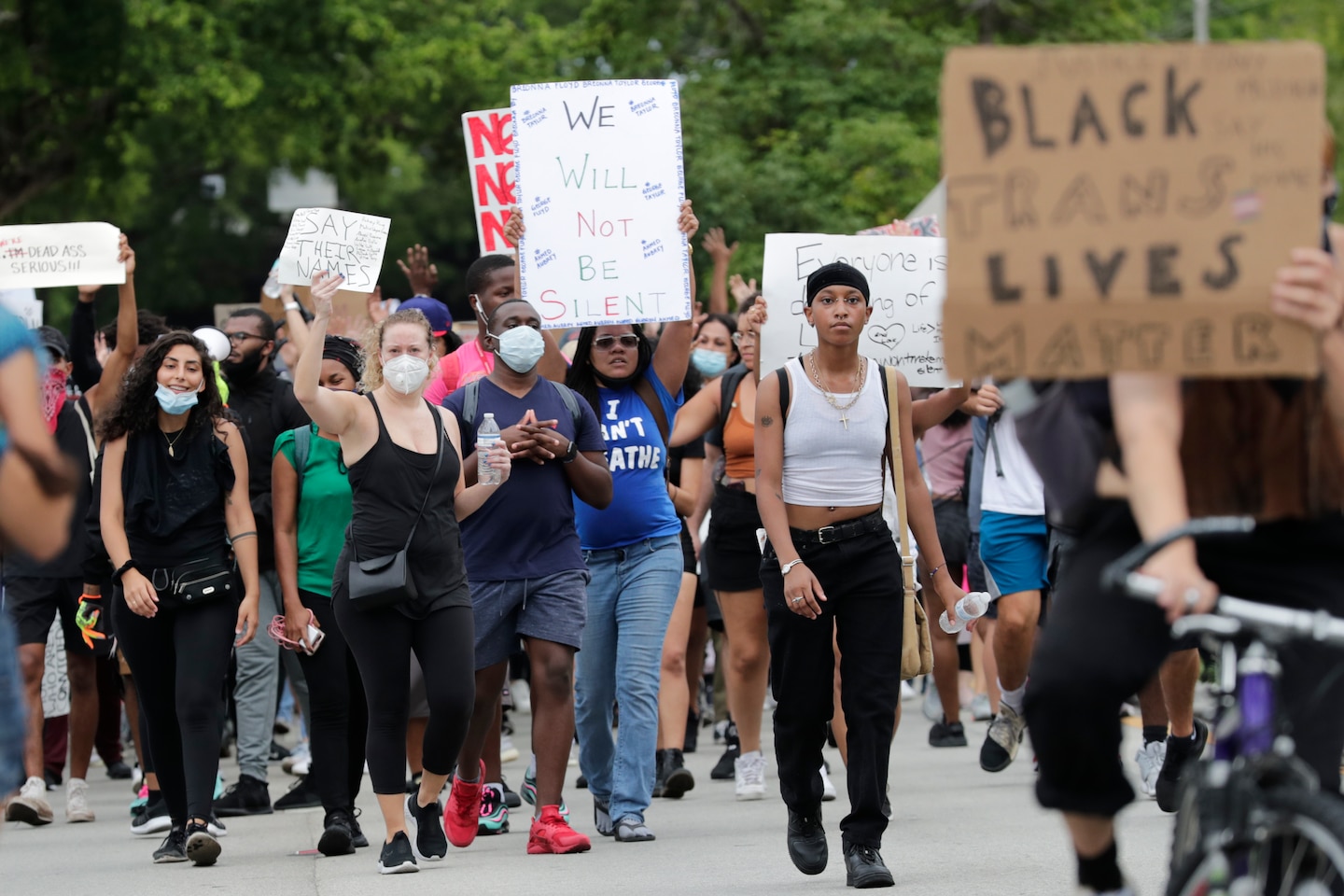Latinos can be racist, too. My community shows how.

It shouldn’t be this way. Latinos have forever had a tangled history with race: After all, we come in all shades of melanin. We are considered “minorities” throughout most of the United States. Many of us come from countries enriched by the enslavement of Africans. We should understand the Black Lives Matter movement in a profound way. Yet here in Miami, action and empathy are color-coded. And despite the work of a young, committed generation of Latinos, I fear that this historic moment of national reckoning will ultimately pass us by.
The Latino experience in Miami-Dade is unusual for the United States. We make up a majority of the area’s population — 71 percent. But within that group, nearly 90 percent of us identify as white, while only about 3 percent identify as black. And far too many Latinos in Miami-Dade simply choose to preserve their white privilege, shrugging off discrimination around them.
There is indifference, or outright hostility, to the Black Lives Matter movement online, in conversations and on the streets among many Latinos. I’ve attended a few large, overwhelmingly peaceful demonstrations in Miami and was initially pleased to see so many multi-ethnic Latinos. But, later, when I remembered that we make up nearly three-quarters of the county, the numbers seemed underwhelming. Daniella Capote, a 27-year-old law student who was born and raised in Miami, told me at a protest that she was infuriated by the lackluster support. Latinos, she said, “forget where they came from, Cuban Americans, in particular. … They need to do more than recognize racism; they have to act against it.”
Then there are the Latinos who are outright opposed to the efforts of Black Lives Matter. Miami is one of the few places where you’ll regularly see “Cubans for Trump” counterprotests. Many of the Latinos demonstrating at these rallies — whether Cuban, Venezuelan or Colombian — describe their motivation as support for law and order. Some may genuinely have benign purposes, but Roberto Santiago, a black Puerto Rican public relations specialist who has spent years in Miami, sees something else at work. “Our people have this denial of racism,” he said, lamenting that many Latinos think their own “minority” status makes them immune to bigotry. “It’s like, ‘We are not racist — we are Hispanic, so why are you offended by this?’ ”
But from my own experiences, I know that Miami Latinos are not immune. Growing up here, I had no black friends; just a handful of black students attended my private school. A ride through black neighborhoods meant locked car doors and eyes peeled for trouble at red lights. Even in my loving, nontraditional family, the idea of a black boyfriend was inconceivable: “Ni se te ocurra — don’t even think about it.”
I never thought much about it, and never really saw myself as racist. Then, a decade ago, I moved home and started to dwell on my own complicity each time relatives, friends, acquaintances and strangers casually slid into the same language I’d heard as a kid: “Ese trabajo es de negro,” equating scutwork to black work. “Eso es una negrada” — when something is done chaotically or poorly. “Está mejorando la raza” — improving the race by marrying white, which is heard sometimes among darker-skinned Latinos.
Year after year, the words swirled around me, but I remained stone-faced and silent, complicit in my cowardice. Then, not long ago, my 21-year-old daughter, Isabel, challenged me. “It’s not right,” she said. “Why don’t you say something?”
Why? Because Miami-Dade’s rare bubble of Latino empowerment, which includes Latino billionaires, a U.S. senator, artists, business titans, judges and celebrities, has desensitized us. As a white Latina here, I never considered myself a minority. I spoke Spanish and English freely. I was proud of my Cuban-ness and our role in shaping modern-day Miami. If some non-Hispanics bristled, they could leave. Many did, sprinting to English-speaking counties north of here, and that was fine with us. We are the establishment now.
Our hard-earned power and influence, though, have emotionally severed us from our origin story. We Cubans escaped Fidel Castro and embraced the freedoms he had shredded: the right to speak and read freely, own property and businesses, hold legitimate elections and — especially — protest the government.
That trauma lingers still over cafecitos, ocean swims and Noche Buena celebrations — because, when you think about it, 1959 wasn’t so long ago. It’s certainly recent enough for Miami’s white Latinos to remember the oppression our own families overcame, and to honor them by standing up for our black neighbors today.
Watch Opinions videos:
Read more:






